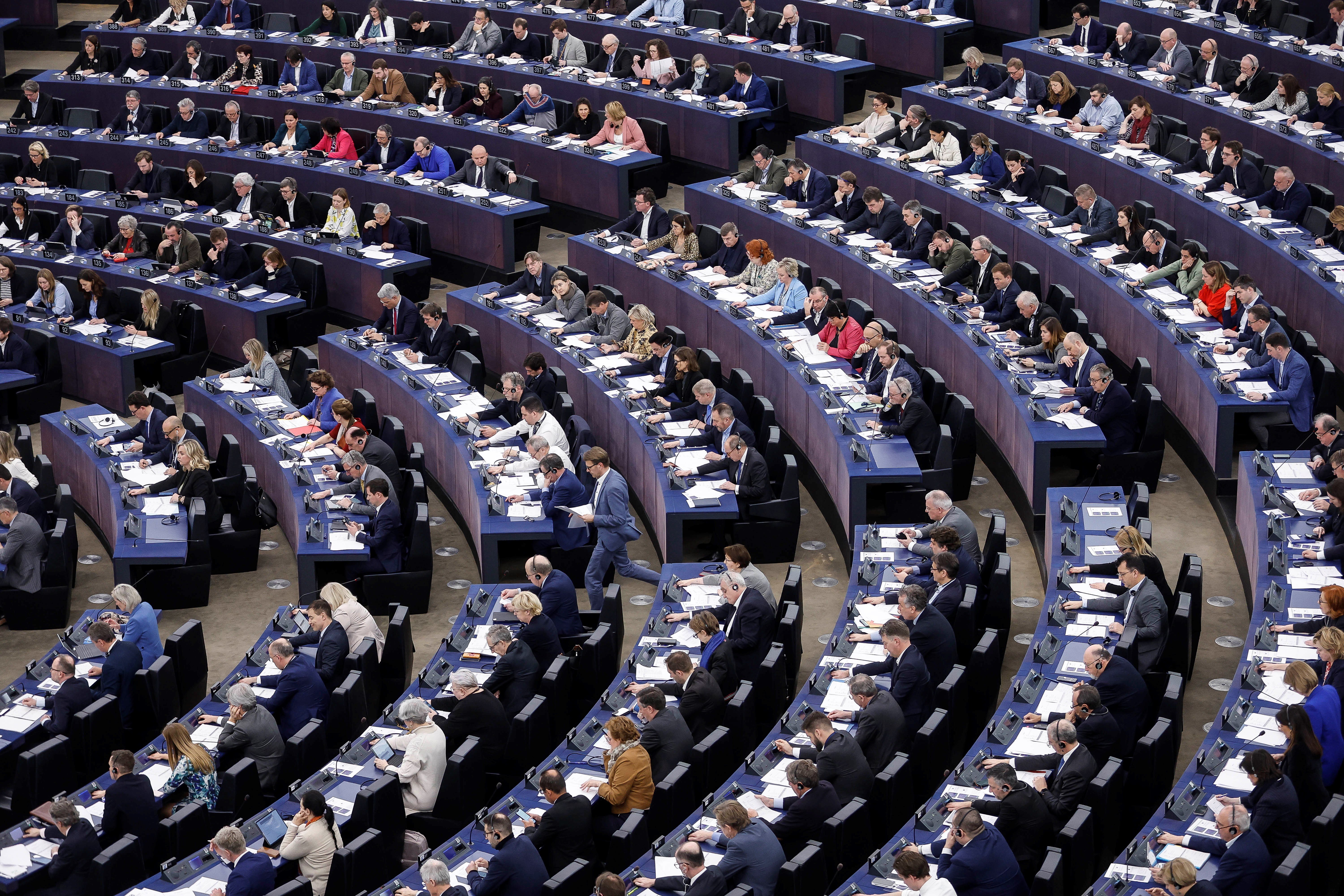Russia's frozen assets to be returned after end of war in Ukraine: EC
The European Commission reaches the "sober conclusion" that legal barriers hinder the plan to use frozen Bank of Russia assets as financial support for Ukraine.
-

Members of the European Parliament vote for a new law binding annual greenhouse gas emission reductions by Member States, Tuesday, March 14, 2023 in Strasbourg, eastern France. (AP)
European Commission (EC) lawyers concluded that the assets of the Bank of Russia, which had been frozen by the EU, will be returned to Moscow once the war in Ukraine ends, according to the German newspaper Die Welt newspaper on Thursday.
The newspaper cited an unpublished EC document, which stated that the assets of the Bank of Russia "cannot be touched since once upon a time, when the war ends, they will have to be returned to Russia." EC experts have reached that "sobering conclusion" despite having claimed that "there is political will but legal barriers are high."
Alternatively, the EC has mulled over the idea of investing the currently frozen assets of the Bank of Russia in such a way as to use the interest gained as support for Kiev. However, it remained that the EC's legal service has yet to find a solution to what would happen in the event that the EU loses the invested funds under any circumstances.
Read more: Freeze of Russian assets one of biggest thefts - Russian official
Russian Central Bank: Sanctions reshaping world economy
Last year, in November, the head of the Central Bank of Russia Elvira Nabiullina, the effects of sanctions on both the world and Russian economies should not be underestimated.
Nabiullina warned that the repercussions of sanctions will be impossible to disregard. Nabiullina, at the time, also stressed that sanctions are causing old economic ties with foreign countries to become outdated as new ties are emerging in a clear state of structural transformation, while Moscow's trade geography and demands on its products are changing.
This Tuesday, Russian President Vladimir Putin said that the law preventing foreign capital from exiting Russia has helped reduce threats to the country's financial system.
"In the second quarter of last year, the Bank of Russia and the government introduced restrictions on the export of capital. And this made it possible to reduce threats to our financial system, ensure its stability, and then, based on the outcome, some restrictions were lifted or weakened," Putin said at a meeting on economic issues.
Putin warned that some risks to Russia's economy are still present and that letting the situation unfold without intervention would be the wrong approach to adopt.
Read more: Russia slams EU proposal of structure to manage frozen assets as theft

 3 Min Read
3 Min Read








